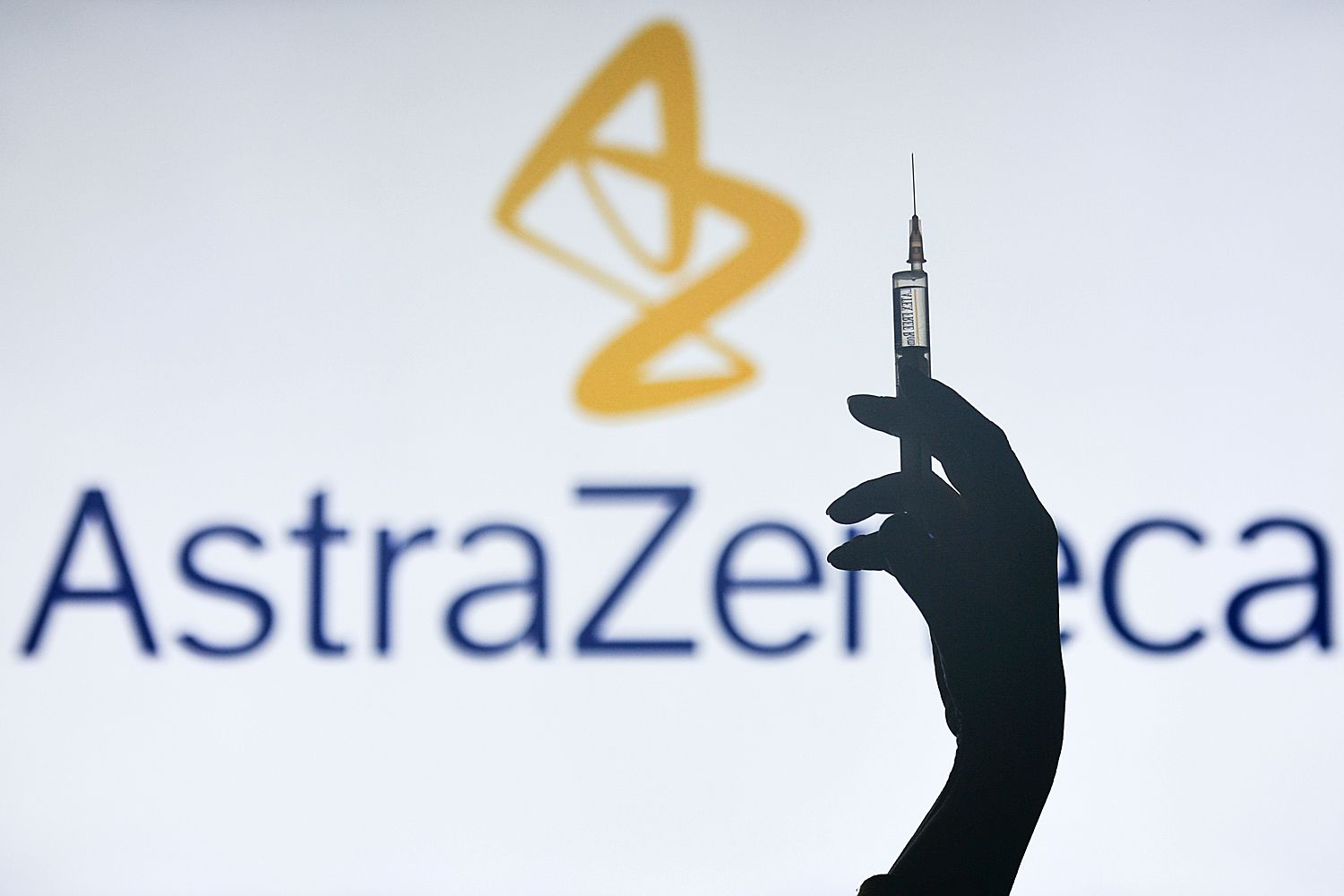
AstraZeneca's U.S. COVID-19 vaccine trial may have included "outdated information," prompting concerns over the shot's "efficacy data," federal health officials said Tuesday, though Dr. Anthony Fauci called the issue just "an unforced error."
One day after the pharmaceutical company reported encouraging results from its Phase 3 U.S.-based clinical trial, the National Institute of Allergy and Infectious Diseases issued a statement about the trial's data.
The NIAID said it was alerted to a "concern" from the the Data and Safety Monitoring Board (an independent group of experts) that the drug company "may have included outdated information from that trial, which may have provided an incomplete view of the efficacy data."
"We urge the company to work with the DSMB to review the efficacy data and ensure the most accurate, up-to-date efficacy data be made public as quickly as possible," the statement continued.
In response to the NIAID, AstraZeneca released an update on Tuesday morning explaining that the "numbers published yesterday were based on a pre-specified interim analysis with a data cut-off of 17 February."
"We have reviewed the preliminary assessment of the primary analysis and the results were consistent with the interim analysis. We are now completing the validation of the statistical analysis," the statement read, adding that the company will share up-to-date efficacy data within 48 hours.
Dr. Fauci, director of the NIAID, appeared on Good Morning America Tuesday, where he said the situation was "really what you call an unforced error because the fact is this is very likely a very good vaccine."
"This kind of thing does, as you say, do nothing but really cast some doubt about the vaccines and maybe contribute to the hesitancy," he added.
On Monday, AstraZeneca released data sharing that its vaccine is 79 percent effective against symptomatic disease and 100 percent effective against severe disease and hospitalization.
The results from the trial, which involved 32,449 American adult participants of all ages receiving either two doses of the vaccine or a placebo at a four-week interval, found that the vaccine "was well tolerated" and had "no safety concerns."
"These results add to the growing body of evidence that shows this vaccine is well tolerated and highly effective against all severities of COVID-19 and across all age groups," said Mene Pangalos, executive vice president, BioPharmaceuticals R&D. "We are confident this vaccine can play an important role in protecting millions of people worldwide against this lethal virus."
Pangalos also said that AstraZeneca plans to submit the trial results to the U.S. Food and Drug Administration (FDA) for emergency use authorization in the coming weeks.
Never miss a story — sign up for PEOPLE's free weekly newsletter to get the biggest news of the week delivered to your inbox every Friday.
The U.S.-based results come after four European countries— Germany, Spain, Italy and France — all suspended use of AstraZeneca's COVID-19 vaccine, which was also developed by the University of Oxford, over concerns that it causes blood clots. Several other countries, including the Netherlands, Denmark, Norway, and Ireland have also halted the distribution of the vaccine.
So far, three COVID-19 vaccines have been granted approval for use in the U.S.: Pfizer, which is 95 percent effective at preventing the virus, Moderna, which is 94 percent effective, and Johnson & Johnson, which is 66 percent effective and the only vaccine that requires one dose (Pfizer and Moderna both require two).
As information about the coronavirus pandemic rapidly changes, PEOPLE is committed to providing the most recent data in our coverage. Some of the information in this story may have changed after publication. For the latest on COVID-19, readers are encouraged to use online resources from the CDC, WHO and local public health departments. PEOPLE has partnered with GoFundMe to raise money for the COVID-19 Relief Fund, a GoFundMe.org fundraiser to support everything from frontline responders to families in need, as well as organizations helping communities. For more information or to donate, click here.
Source: Read Full Article
